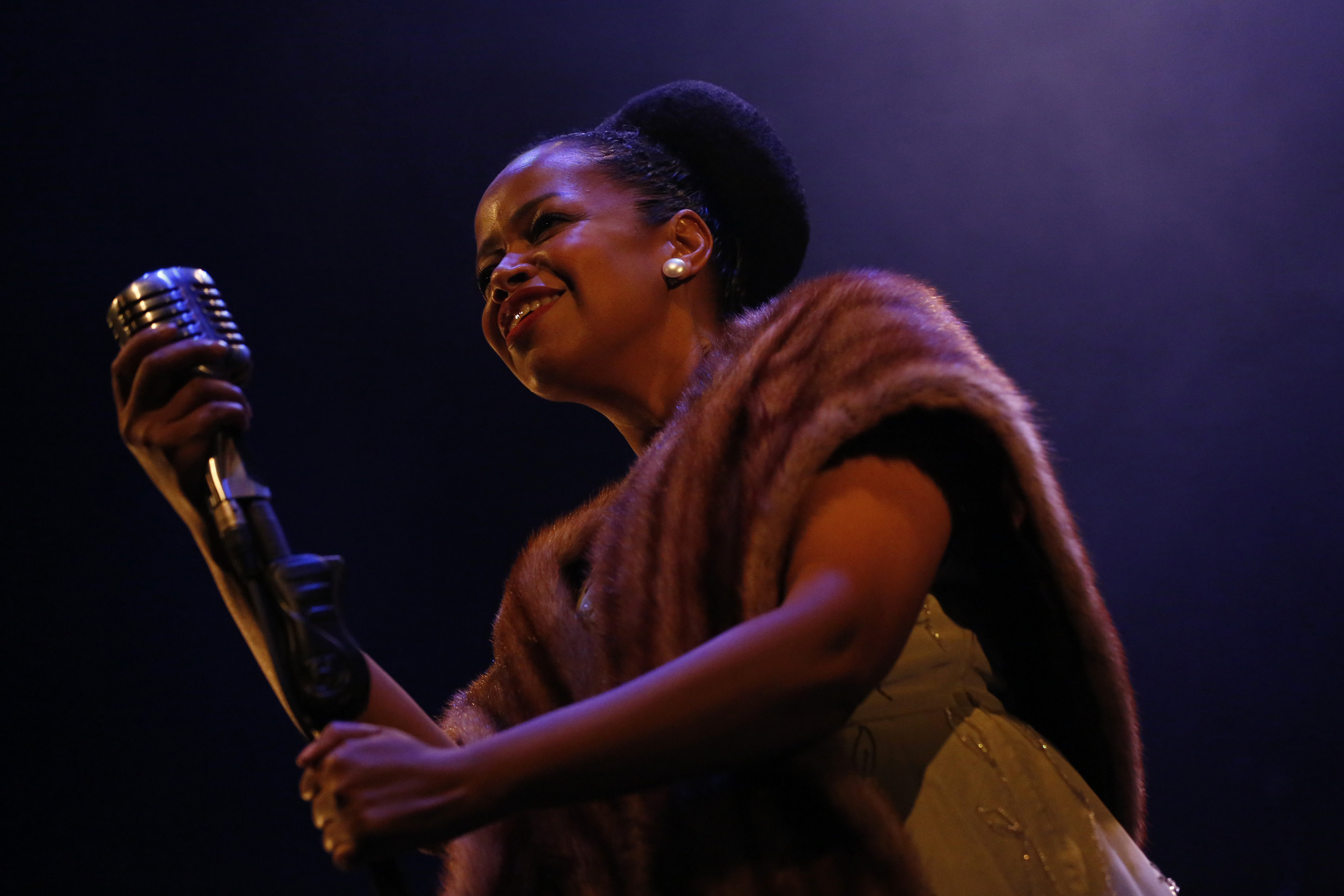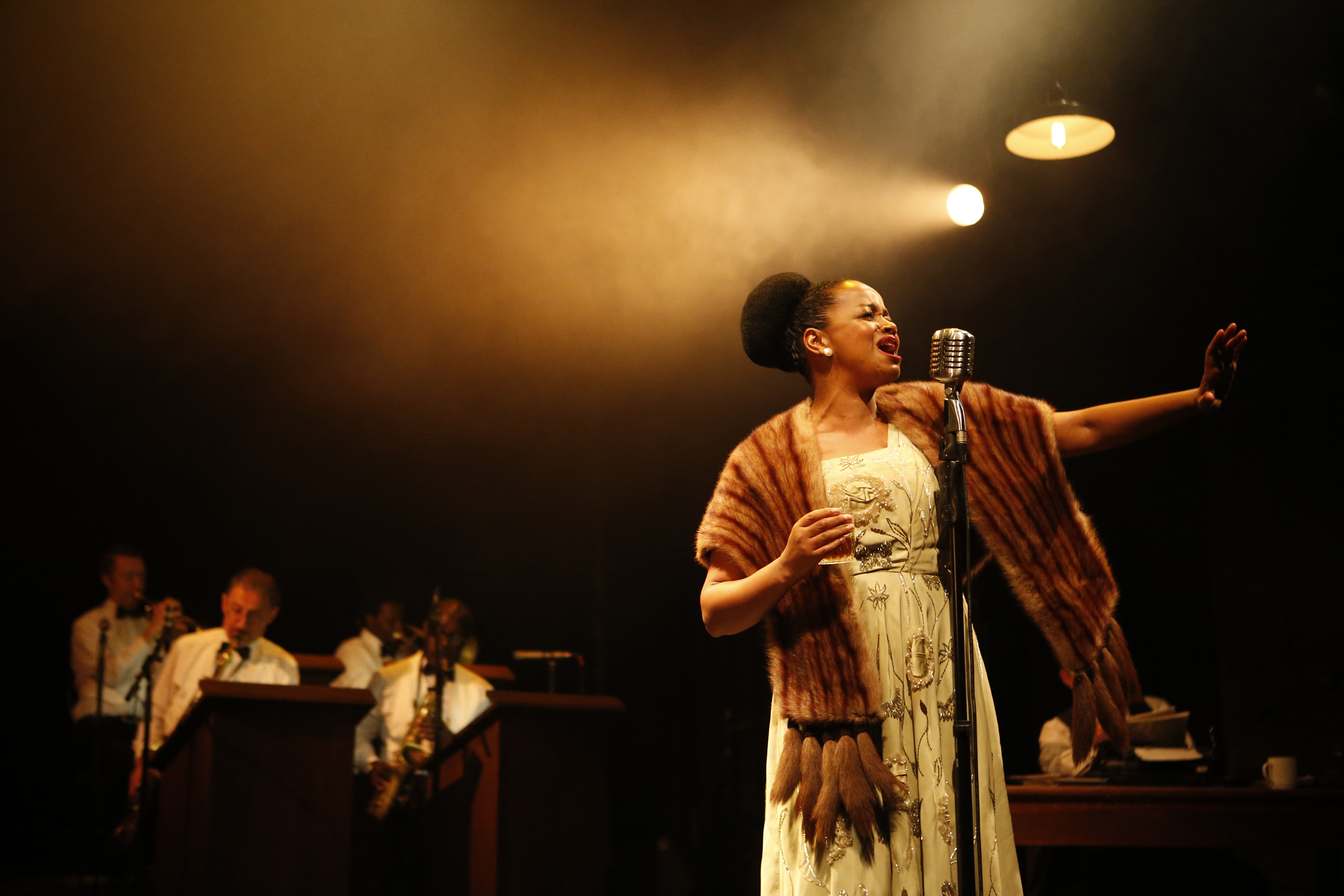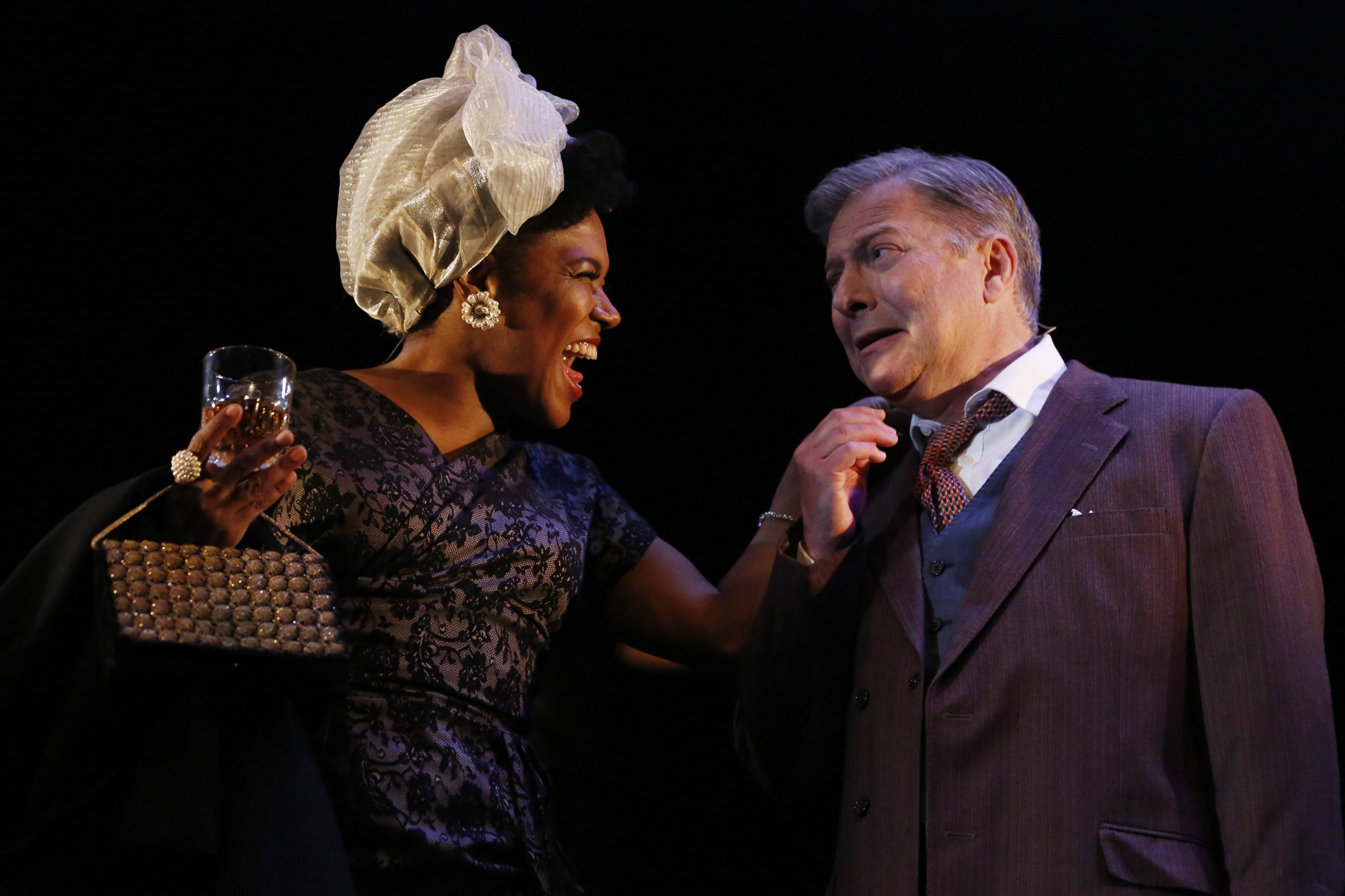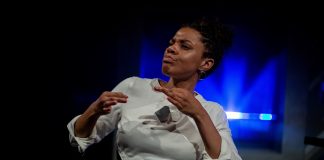Café Society Swing(see listing) tells the true story of the Café Society jazz club in New York (1938-1948); the first racially integrated nightclub in the US, pioneered by former shoe salesman Barney Josephson (1902–1988). With its ongoing commitment to ‘provide a platform for those voices underrepresented in the ever-changing communities of the East End of London’ Theatre Royal Stratford East is a fitting home for the musical. On this night, it boasts a packed house as diverse as the legendary club, which has been lovingly memorialised on stage as a post prohibition hangover; smoky, seductively lit and slightly sweaty.
This is not a play in three acts but a Vaudevillian Revue; short comical sketches, stunning musical performances and some dramatic exposition.
The show is filled with characters whose personal lives we now know to have been as compelling as their music, such as Lena Horne and Sister Rosetta Tharpe. There is a temptation therefore to see those personalities playing off against each other in the microcosm Webb has constructed for us. But the writer, musical director and pianist Webb clearly cares as much about the legacy of these artists as Josephson did and there is no such drama in this production. I’ll admit I found this underwhelming at first. And then somewhere between Sue Richardson’s scene stealing trumpet solos and watching Ciyo Brown’s transform from guitarist to character actor, I understood was being offered to me; a rare night out at a jazz club that frequently upstaged the better remembered Cotton Club with its line-up and explicitly pro-black position. Suddenly the production finds its place.
This is not a play in three acts but a Vaudevillian Revue; short comical sketches, stunning musical performances and some dramatic exposition. The dramatic exposition is the least convincing part of the show. It provides a useful structure charting the rise and fall of Café Society, and the context of World War II and McCarthyism exacerbating and exploiting racial tension. But it feels clunky and often weighs down the emotional resonance achieved by the musicians. And what an achievement it is. Vimala Rowe, China Moses, Judi Jackson and Ciyo Brown take on various musical personalities throughout the night, showcasing astonishing versatility, range and charisma. China Moses’ interpretation of Sarah Vaughan is perhaps the vocal highlight of the night, in an embarrassment of musical riches.
We learn that Josephson wanted to use the platform he developed, and the privilege he had, to change how people relate to each other. The show paraphrases a statement he once made; ‘I ‘wanted a club where blacks and whites worked together behind the footlights and sat together out front…, there wasn’t, so far as I know, a place like it in New York or in the whole country.” This call for equality has since been made more eloquently, but has still not been achieved. Webb does something similar here.
He is not a dramatist and so you will not find that here. For instance, Billie Holiday’s well documented, and ultimately fatal, substance abuse problems are casually dismissed as artistic hijinks. But it never feels disrespectful or like a cop out. Webb instead lends his considerable musical gifts to force us to tune out the tabloid fodder we have become so accustomed to and focus on Billie Holiday’s voice, in which you can hear the pain, the charm, and the grit of an entire generation of black artists who will never get their dues. The show closes with Vimala Rowe’s homage to Ms Holiday’s performance of Strange Fruit, which debuted and was nurtured at Café Society, and is the singular moment in the show.



























